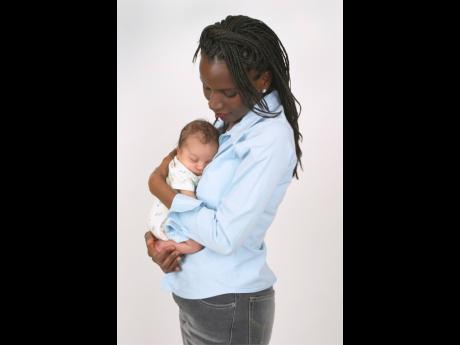Birth pains - Scores of children born at home, exposed to serious medical complications because of lack of public healthcare facilities, violence
In the last five years, more than a thousand babies have been delivered at home or while in transit, putting them at risk for medical complications. The lack of public health facilities, distance from rural homes and ongoing gang violence have forced expectant mothers in labour to have their children in less than ideal circumstances.
According to statistics provided last week by the Registrar General’s Department (RGD), 1,268 children have been born outside of a public or private healthcare facility since 2014 and many of them were delivered by persons who were not doctors or midwives.
Rural parishes accounted for the highest numbers of births outside of registered facilities, with Manchester, Clarendon and St Catherine leading the way with 189, 183 and 145 recorded births, respectively.
According to RGD records, Kingston was the only parish with no records of such births over the five-year period that saw at least 178,574 births. The RGD said more than 90 per cent of those children were delivered in a public healthcare facility by trained professionals.
A small percentage of expectant mothers, the RGD said, made preparation to have their babies at their homes, using trained doctors or community midwives for delivery. An even larger number of cases over the period, however, are unplanned.
According to Dr Dayne Ashman, medical doctor, and diplomat of the American Board of Pathology, who since 2011 has served at the Kingston Public, Victoria Jubilee and the Bustamante Children’s hospitals, among others, there are several reasons some pregnant women fail to reach a hospital or private medical facility to have their babies.
“In one case, the mother was morbidly obese and was having multiple chronic illnesses, and she did not realise that she was pregnant until she was in advanced labour. All the other cases I saw were of mothers who couldn’t leave home because either gang violence was going on or they couldn’t arrange transportation to the hospital in time,” Ashman told The Sunday Gleaner.
DELIVERED BY TRAINED PROFESSIONALS
According to the doctor, delivery of a baby at home or in transit is significantly riskier for mothers who have had child-bearing challenges before.
“There are many situations in which home birth is not recommended for mothers. These include those mothers who previously had a C-section or those who are carrying twins. These situations increase the risk of complications during labour and delivery, and are best managed in a hospital setting,” he said, listing unexpected bleeding and prolonged labour among other possibilities which are best treated at a hospital.
Ashman said it is imperative that babies are delivered by trained professionals to prevent common limb fractures and other injuries to the baby, delivery in unsanitary conditions, and to prevent the retention of afterbirth, which may lead to severe infection in the mother.
Both baby and mother should be taken immediately to an official healthcare facility after birth, he said.
… Home births pose challenges to registration and records keeping
Monique Lyn Quee, manager of civil registration and vital statistics at the Registrar General’s Department (RGD), explained that while home births have generally been on the decrease since 2011 – which accounted for 617 births outside of registered medical facilities – the phenomenon still poses challenges to registration and record-keeping.
“Our registration data is limited by the number of persons who come forward to register, but we figure that we are not missing any, and that the ones who we do miss usually come back, for instance, when the child has to go to clinic or to school,” noted Quee.
“Even at christening, some pastors ask for a birth certificate. So eventually, they do have to come in within the year; while a few persons come in after the year for the registration for home birth.”
In January 2007, the RGD began offering Civil Bedside Registration for babies born in hospitals. However, individuals with children born outside of hospitals must take the following steps:
n An informant must attend the nearest Local District Registrar (LDR) or RGD Registration Centre/Office where the child was born to register the birth. This person can be a parent, person present at birth, an occupier of the house in which the birth occurred, or any adult who is aware of the birth of the child.
n To register the birth, there must be:
– A valid ID for parent/informant.
– Letter from a midwife, a notarised letter signed by a justice of the peace stating details of the birth.
n If the parents are not married, both must attend the LDR or RGD office for the father’s particular to be added.
n The birth registration form is completed by the LDR or Registration Officer and all other relevant signatures affixed.
n The original registration is sent to the RGD head office within six weeks of the registration.

